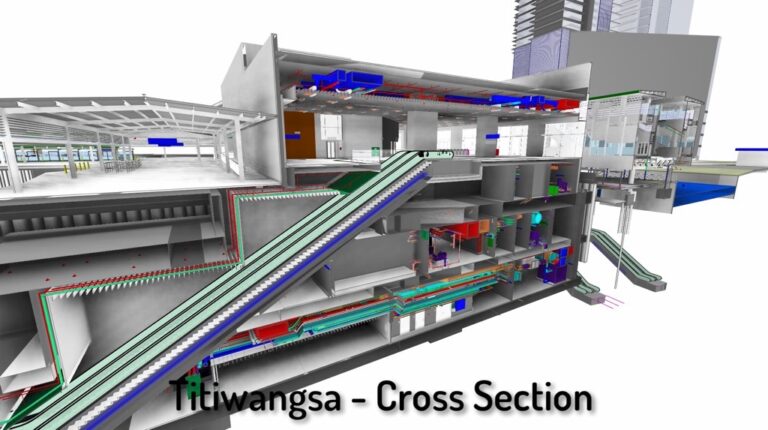Originally Published 20-June-2007 !
Building Information Modelling or BIM, is specified by clients, property owners, and developers, as they are aware of the benefits and savings which can be derived from co-ordinated 3D models. In order to fully realise the benefits from the model during the scheme design, detailed design, construction and operation and maintenance of the building project, an independent BIM Manager should be appointed by the client.
The primary issue for our industry is “who is a qualified BIM Manager” and of course, “how will the BIM Manager ensure collaboration take places with all the other stake holders?”
Do you appoint the Architect as the BIM Manager?
Some people would say the lead consultant, typically the Architect should be appointed as the BIM Manager. These people back this notion up with the theory that the Architect is responsible for designing the building and should orchestrate the co-ordination of their building design with the other design professionals.
But maybe the Structural Engineer could do be appointed as a BIM Manager, as typically they have good experience of generating 3D models for structural analysis and structural detailing. In addition, the majority of co-ordination required for Building Services (MEP) is between the structural, mechanical, electrical, P&D and fire services engineers. Provided the engineers can accommodate their design in the space for the risers and ceiling voids provided by the architect, there will be less re-working on-site and as a result a direct reduction in construction waste.
However, it is common for the contractors to co-ordinate services and builders work with agreement or approval from the Architect and Engineers. If the contractor is not appointed at the early stage of the design process, it is often too late to implement a full BIM process on a project for resolving issues and delivering coordinated shop drawings. There are proven benefits to contractors in producing 3D models only at construction stage but the clients and developers don’t necessarily reap any rewards.
We have a few possible candidates in the architect, the engineer or the contractor, but none of them are immediately obvious suitors to be BIM Managers.
Then of course you have to evaluate the experience and skills of your prospective BIM Project Manager.
- Have they managed a BIM project before?
- Which software platforms and technologies are they familiar with?
- Do they understand the importance of defining BIM Project Standards such as units, co-ordinate systems, file structures, clash resolution procedures and of course drafting standards?
- Are they familiar with multi-disciplinary design interaction and have they got project management skills?
- To top it all off, should they have degrees in Architecture, Engineering or Construction?
Then there is the broader issue of whether any of the consultants or contractor have worked on a BIM project previously. If this is a new process to the majority of professionals then the BIM Manager will also need to be experienced in training people on how to work with a BIM team.
Therefore a good BIM Manager needs to understand the many facets of construction, operate with proven procedures and above all they need to be able to work with the client to define the scope and purpose of BIM on a project.
In my opinion, the jury is out on this one for now. As more and more clients demand co-ordinated designs facilitated by detailed 3D models, different consultants will emerge with their ideas on how to implement and manage a BIM project.
For it to be a true success, everyone involved in construction needs to learn about and understand BIM and how it affects their role within the industry.





